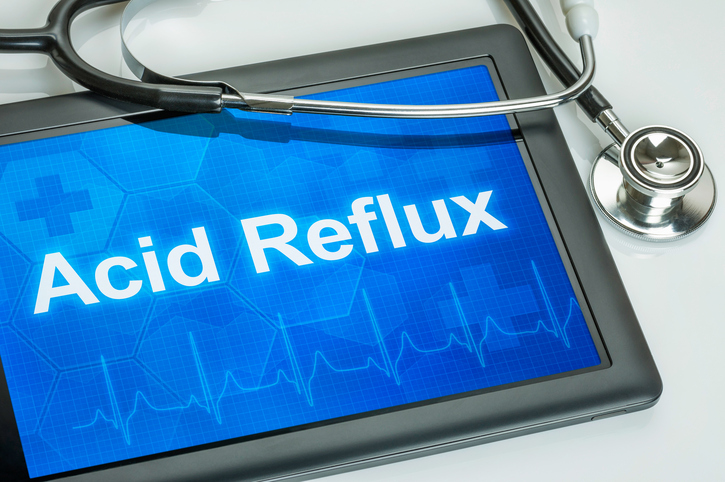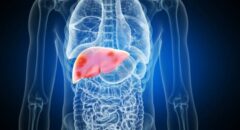 If you live with heartburn or acid reflux, you are likely taking medication to manage it. Proton pump inhibitor (PPIs) drugs are medications that reduce gastric acid secretions, and include popular brand names such as Prilosec, Nexium and Prevacid. Not only do PPIs kill and ingest microbes and suppress gastric acid secretions, but according to new research from University of California San Diego School of Medicine, they can also change intestinal bacteria which can promote the progression of liver disease.
If you live with heartburn or acid reflux, you are likely taking medication to manage it. Proton pump inhibitor (PPIs) drugs are medications that reduce gastric acid secretions, and include popular brand names such as Prilosec, Nexium and Prevacid. Not only do PPIs kill and ingest microbes and suppress gastric acid secretions, but according to new research from University of California San Diego School of Medicine, they can also change intestinal bacteria which can promote the progression of liver disease.
According to the National Institute of Health, gastroesophageal reflux disease (GERD) affects about 20% of the U.S. population. Drugs that treat this are among the most commonly prescribed medications in the world and can be easily obtained over the counter at your local drug store.
Approximately 6-15% percent of the general population take PPIs. Up to 32% with non-alcoholic fatty liver disease and up to 72% of those with cirrhosis take the acid reducing drugs to block stomach acid secretions and relieve symptoms of frequent heartburn, acid reflux and GERD. So with the rising number of people with chronic liver disease in Western countries and liver cirrhosis as end-stage organ disease now the 12th leading cause of death worldwide, could this be a side effect of PPI medication use?
Possibly.
The UCSD study, published October 10 in Nature Communications, showed that PPI use increased the number of intestinal Enterococcus bacteria in mice. The translocating enterococci bacteria lead to liver inflammation and liver cell death. Notably, it was the expansion of intestinal Enterococcus faecalis (E. faecalis) which was enough to exacerbate alcohol-induced liver disease in mice.
PPI use increases the risk of developing...
...alcoholic liver disease among alcohol dependent patients. Reduction of gastric acid secretion therefore appears to promote overgrowth of intestinal Enterococcus, which promotes liver disease, based on data from the mice models and humans.
READ: 9 Natural Remedies To Get Rid Of Acid Reflux And Heartburn Fast!
This is definitely an undesired and adverse effect of PPIs so it’s important to understand this and to consult with your doctor to ensure the necessity of these drugs. Occasional use of PPIs for acute or short-term problems are typically should not problematic however there are safety issues associated with long term therapy. The American Gastroenterological Association Institute recommends determining the least potent therapy that controls acute GERD and then continuing this therapy for eight weeks. After eight weeks, then one should be given a trial off the medication.
If symptoms recur in fewer than three months, there may be a need for maintenance therapy. Maintenance therapy can be intermittent or continuous. Your doctor may also recommend you have an upper endoscopy if there is doubt about the diagnosis or any other symptoms you may be having are suggestive of another diagnosis.
READ: The Best & Absolute Worst Foods To Eat With Acid Reflux
So do PPIs have an important place in managing acid reflux symptoms? Yes. Are they safe? Yes, when used appropriately. So don’t continue to blindly take these medications over the counter indefinitely. Talk to your doctor about your use and make sure to also include the following preventative methods in your daily routine.
- Eat sparingly. When the stomach is full there is more reflux into esophagus.
- Stop smoking. Nicotine relaxes the lower esophageal sphincter, making it easier for food and acid to reflux into the esophagus.
- Avoid certain foods. Spicy foods, garlic, and alcohol can increase acid production.
- Don't drink carbonated beverages. These promote burping, sending acid into the esophagus.
- Sit up after eating. Don't lay down right away. Gravity keeps food and acid in the stomach.
- Lose weight if appropriate. Extra weight causes muscular structure to change, loosening the closure at esophageal sphincter.
- Ask your doctor to review your medications. Some can irritate your esophagus.
Is your acid reflux giving you the flux? Do you have some questions or want to make a comment? I’d love to hear from you. You can post them on Twitter or Facebook using #AskNurseAlice or email them to [email protected].
 Nurse Alice is a nationally board-certified and award-winning cardiac clinical nurse specialist and emergency room nurse with nearly two decades of experience in cardiovascular health. She is a community health activist and freelance media health expert. She has appeared on various national radio and TV shows including Dr. Oz, The Doctors, Dr. Drew, News One with Roland Martin, FOX News, KTLA and CNN. She is also the author of “Curb Your Cravings: 31 Foods to Fool Your Appetite.”
Nurse Alice is a nationally board-certified and award-winning cardiac clinical nurse specialist and emergency room nurse with nearly two decades of experience in cardiovascular health. She is a community health activist and freelance media health expert. She has appeared on various national radio and TV shows including Dr. Oz, The Doctors, Dr. Drew, News One with Roland Martin, FOX News, KTLA and CNN. She is also the author of “Curb Your Cravings: 31 Foods to Fool Your Appetite.”
You can follow her at AskNurseAlice.com and on Twitter, Facebook, and Instagram at @AskNurseAlice








